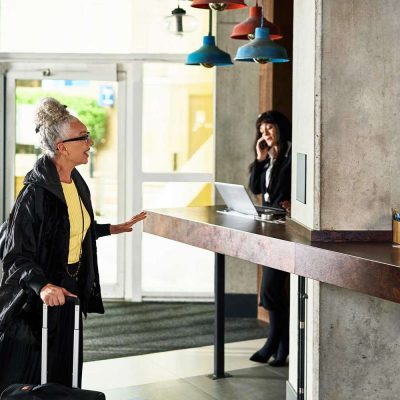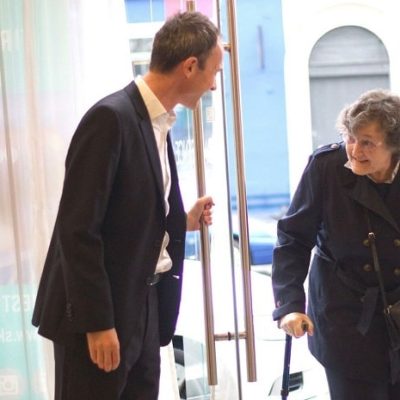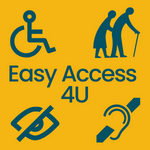Making hospitality inclusive for all.
Creating a welcoming environment for guests with disabilities is a crucial aspect of providing inclusive and accessible hospitality services. When guests with disabilities feel comfortable and valued during their stay, they are more likely to have a positive experience and return in the future.
To achieve this, hotels must take a proactive approach to identifying and addressing potential barriers to accessibility, as well as provide staff with the training and resources necessary to accommodate guests with disabilities effectively.
By prioritising the needs and preferences of guests with disabilities, hotels can create a welcoming and inclusive environment that benefits all guests.
Making your hotel accessible
Accessibility is a critical aspect of hotel design and accommodations for guests with disabilities. It is essential to ensure that people with disabilities can access all areas of a hotel, including guest rooms, restaurants, and other amenities, with ease and dignity.
The importance of accessibility in hotel design and accommodations for guests with disabilities can be highlighted in the following ways:
-
Inclusivity: Providing accessible accommodations in hotels ensures that all guests, regardless of their ability, can enjoy their stay and participate fully in hotel activities. This inclusivity promotes a positive experience for all guests and can increase customer satisfaction and loyalty.
-
Legal compliance: In many countries, including the United Kingdom, hotels are legally required to provide accessibility features to guests with disabilities. Failure to comply with these regulations can lead to legal action, fines, and reputational damage.
-
Social responsibility: Providing accessible accommodations in hotels is a socially responsible practice. It demonstrates a commitment to equal rights and opportunities for all individuals and can help to break down barriers and promote social integration.
-
Business benefits: Accessible hotel accommodations can attract a wider range of customers, including guests with disabilities, their families, and caregivers. This can increase revenue and boost the hotel’s reputation as a welcoming and inclusive destination.
In summary, ensuring accessibility in hotel design and accommodations for guests with disabilities is crucial for promoting inclusivity, legal compliance, social responsibility, and business benefits. By prioritising accessibility, hotels can create a welcoming and positive experience for all guests and demonstrate their commitment to equal rights and opportunities for individuals with disabilities.
Creating a culture of inclusion and accessibility throughout the hotel experience
Here are six proven strategies that will help your business create the right experience for guests with disabilities.
Here are some strategies for achieving this:
-
Employee training: All hotel employees should receive training on how to interact with guests with disabilities and how to provide appropriate accommodations. This training should cover disability awareness, accessible communication, and assistance with mobility and other needs.
-
Accessibility features: Hotels should provide accessibility features throughout the property, including guest rooms, common areas, and amenities. This includes features such as wheelchair ramps, accessible parking, tactile signage, and accessible bathroom fixtures.
-
Communication: Hotels should communicate clearly and effectively with guests with disabilities, including providing information in accessible formats, such as braille, large print, and audio. Hotel staff should also be trained to communicate effectively with guests who use sign language or other forms of non-verbal communication.
-
Feedback and evaluation: Hotels should regularly seek feedback from guests with disabilities to assess their experience and identify areas for improvement. This can include conducting surveys, focus groups, and other forms of evaluation.
-
Inclusive marketing: Hotels should ensure that their marketing materials, including websites, brochures, and advertisements, are inclusive and accessible. This includes using images and language that reflect diversity and promoting the accessibility features of the hotel.
-
Partnership with disability organizations: Hotels can partner with disability organizations to promote accessibility and inclusion. This can include consulting with disability organizations on accessibility features and best practices, as well as sponsoring events and initiatives that promote disability rights and inclusion.
By implementing these strategies, hotels can create a culture of inclusion and accessibility throughout the guest experience. This can help to promote a positive guest experience, increase customer loyalty, and demonstrate the hotel’s commitment to equal rights and opportunities for individuals with disabilities.



Comments